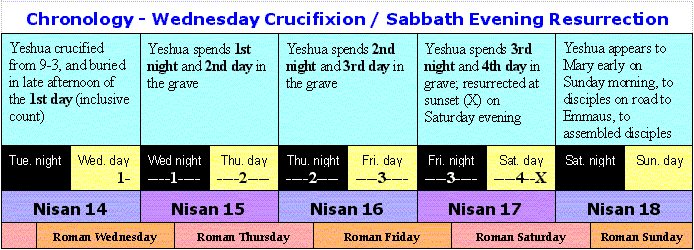I didn't want to derail the other one law thread any more so thought this was better to continue the discussion here so we can keep it all together. I think this is a most important subject to discuss.
Now it was being debated just what was meant in the NT by 'breaking Bread'.
So believe it to be a ceremony or ritual others believe it to be something done only at Passover.
I have even seen some (not members here but respected Hebraic teachers) teach that you can do it any time, any where, all alone several times a day even.
But what is the root of this term 'breaking bread'?
It seems that there are recorded in the Talmud what it meant to Jews back then.
The "breaking of bread" is something which is done only in the context of a meal. In fact, the Talmud uses the term only in reference to the blessing at the start of the meal. The one who says the blessing over the bread is referred to as the one who "breaks bread". At every meal, it was, and is the custom to have bread and wine. The blessings over the bread and wine are said at the beginning of the meal. The one who recited the blessing, did so while literally breaking the bread.
aish.com has an article online called
Challah – Breaking Bread on Shabbat
OK, the Committee for the advancement of Torah says: Breaking of Bread and Hamotzi
Over true bread made of one of the five species of grain (wheat, spelt, oats, barley or rye), we say the benediction Hamotzi, and after eating it, we say Grace after meals.
As a token of respect to the benediction Hamotzi, one should break off at the choicest spot of the bread. It is required to have salt set on the table before breaking bread, and to dip into the salt the piece of bread over which the Hamotzi is said.
The Laws for the 'breaking of bread'
And from a Messianic perspective we find this:
1.The New Testament scriptures that speak of breaking bread among early Messianic Jews did not mean the supposed Communion ritual, as many commentators have believed since Rome.
2.The idiom of breaking bread has a long Jewish history, originating with the twelve breads that were broken and shared each Sabbath in the Temple. Messianic Jews understood that the Messiah and his teaching fulfilled this idiom as the 'true bread', the 'bread of life'.
This is what the New Covenant scriptures on breaking bread refer to, and this was the idiom where the phrase “breaking bread” originated
Since these scriptures were originally written from a first-century Jewish perspective but
later misunderstood by Rome to indicate a ritual, we’ll focus first on how breaking bread
developed in the Jewish tradition. Then we’ll turn to how New Covenant Jewish believers—using their
natural-to-spiritual idiom—built on the existing Jewish idiom of breaking bread in the Temple and in Jewish homes, and went forth “breaking bread” spiritually.
More to come
Now it was being debated just what was meant in the NT by 'breaking Bread'.
So believe it to be a ceremony or ritual others believe it to be something done only at Passover.
I have even seen some (not members here but respected Hebraic teachers) teach that you can do it any time, any where, all alone several times a day even.
But what is the root of this term 'breaking bread'?
It seems that there are recorded in the Talmud what it meant to Jews back then.
The "breaking of bread" is something which is done only in the context of a meal. In fact, the Talmud uses the term only in reference to the blessing at the start of the meal. The one who says the blessing over the bread is referred to as the one who "breaks bread". At every meal, it was, and is the custom to have bread and wine. The blessings over the bread and wine are said at the beginning of the meal. The one who recited the blessing, did so while literally breaking the bread.
aish.com has an article online called
Challah – Breaking Bread on Shabbat
OK, the Committee for the advancement of Torah says: Breaking of Bread and Hamotzi
Over true bread made of one of the five species of grain (wheat, spelt, oats, barley or rye), we say the benediction Hamotzi, and after eating it, we say Grace after meals.
As a token of respect to the benediction Hamotzi, one should break off at the choicest spot of the bread. It is required to have salt set on the table before breaking bread, and to dip into the salt the piece of bread over which the Hamotzi is said.
The Laws for the 'breaking of bread'
And from a Messianic perspective we find this:
1.The New Testament scriptures that speak of breaking bread among early Messianic Jews did not mean the supposed Communion ritual, as many commentators have believed since Rome.
2.The idiom of breaking bread has a long Jewish history, originating with the twelve breads that were broken and shared each Sabbath in the Temple. Messianic Jews understood that the Messiah and his teaching fulfilled this idiom as the 'true bread', the 'bread of life'.
This is what the New Covenant scriptures on breaking bread refer to, and this was the idiom where the phrase “breaking bread” originated
Since these scriptures were originally written from a first-century Jewish perspective but
later misunderstood by Rome to indicate a ritual, we’ll focus first on how breaking bread
developed in the Jewish tradition. Then we’ll turn to how New Covenant Jewish believers—using their
natural-to-spiritual idiom—built on the existing Jewish idiom of breaking bread in the Temple and in Jewish homes, and went forth “breaking bread” spiritually.
More to come

